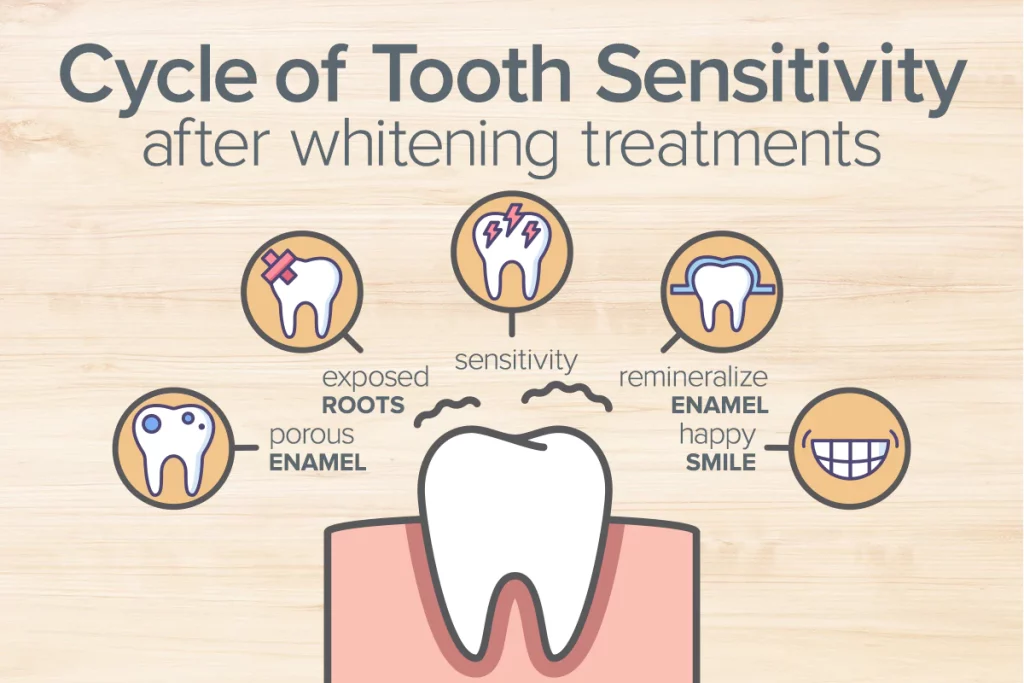Teeth Whitening Dentist Near Me
Dealing with Sensitivity after Teeth Whitening
If you are looking to rid your teeth of stains and discoloration, the best option usually is to whiten the teeth. There are several options available and can be done at home or in-office at your dentist. The problem is, according to Reader’s Digest, 78% of people have tooth sensitivity after undergoing external tooth bleaching using the traditional carbamide peroxide.
To Bleach or Not to Bleach
As far as options go, there are many to choose from; gels, bleaching strips, whitening toothpaste, and even mouth rinses. Tooth whitening can be achieved in 2 ways, according to the ADA; using bleaching products and non-bleaching products. The teeth can be bleached with a product that changes the natural color of the teeth. A lot of these products contain carbamide peroxide. It works to remove stains that are both deep and on the surface. Non-bleaching products contain ingredients that only work to remove surface stains.
Sensitivity can happen during and after using peroxide-based bleaching agents. Having sensitive teeth means having enhanced responses to hot and cold drinks, aggressive toothbrushing, or sweet foods. It comes in with a short, sharp pain. Alabama Teeth Whitening Dentist Near Me Fairhope Usually this sensation happens during the early stages of bleaching when the hydrogen peroxide soaks through the enamel.
Products like whitening toothpaste usually cause less sensitivity because it only treats the teeth’s surface. Everyone is different, so a person can experience a different result with the same product. Usually, gels that are used in bleaching trays, as well as some over-the-counter bleaching products, have a greater potential for causing sensitivity after whitening. Alabama Teeth Whitening Dentist Near Me Fairhope
Visit us for expert care:
Sweet Water Dentistry
📍 5915 Sweetwater Cir, Fairhope, AL 36532
🌐 sweetwatersmile.com
📞 Call or Text: (251) 210-2773
Follow us on Facebook and Instagram for the latest updates and special offers!
Down by the Bay


